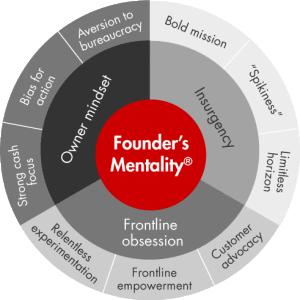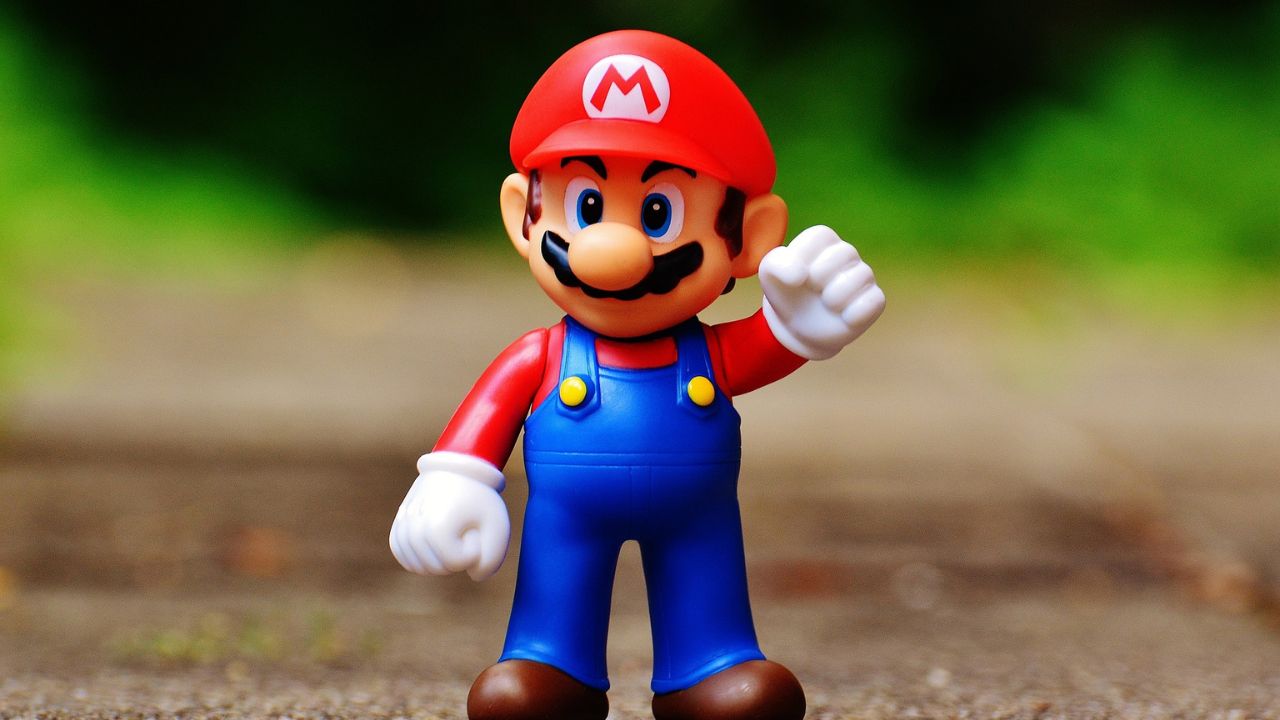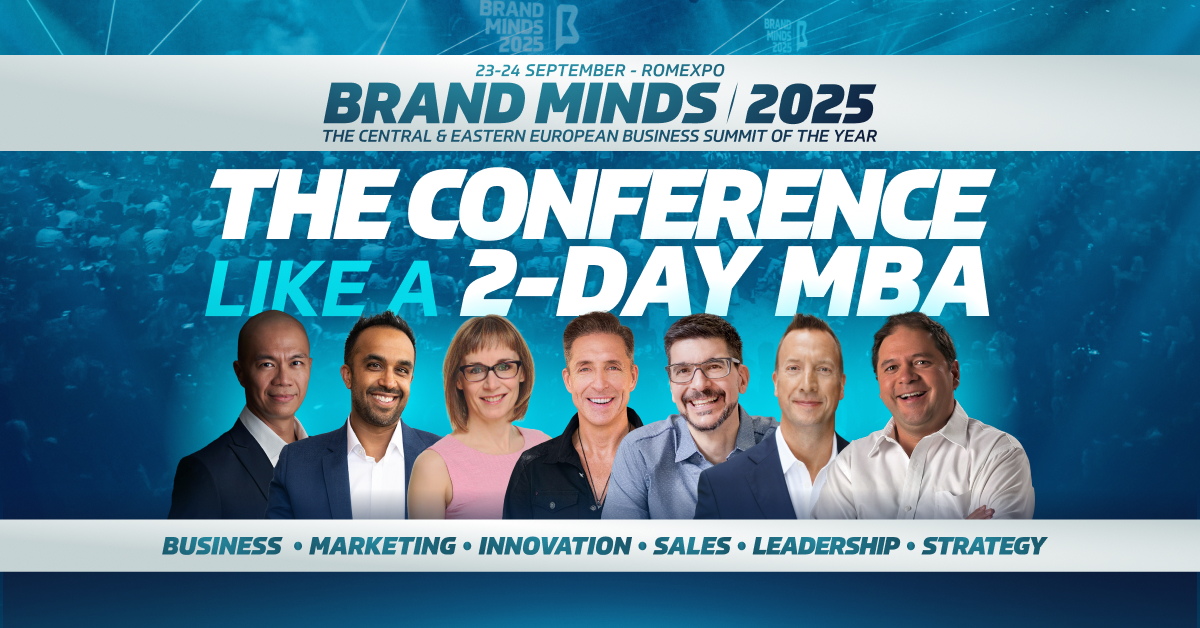Long-term growth for his or her business is every founder’s dream.
They all envision a future where their business is achieving its objective – changing the world and their customers’ lives for the better.
While visualising how your business’s future will look like is desirable, having knowledge of real-world challenges of the business environment is mandatory.
Many founders and entrepreneurs starting out their businesses are asking themselves this question:
What is the success rate of businesses?
Statistics say the following:
- 20% of new businesses survive past their first year of operation;
- Around 50% of all businesses no longer exist after five years;
- 1/3 make it past their 10th anniversary (source: usatoday.com)
- 1 in 9 companies sustain more than a minimum level of profitable growth over 10 years (source: Bain&Company).
These low numbers paint a rather gloomy picture.
But don’t let them discourage you!
Research has found the secret behind the successful long-term growth of the 1 in 9 companies mentioned above and this article helps you discover it.
In 2016, Bain & Company, a management consulting firm published its research, which tackled the subject of business crises.
The findings are detailed in How to overcome the predictable crises of growth: The Founder’s Mentality authored by Bain strategists, Chris Zook and James Allen.
The Founder’s Mentality – the study
Bain & Company’s 18-year study looked for answers related to the burning question of
Why are there so little companies capable of sustained growth over a long period of time?
The researchers broke this big question into three more detailed questions. They are:
- What are the primary barriers and challenges that companies face today in their pursuit of sustained and profitable growth?
- What distinguishes the companies that are able to anticipate and address these challenges most successfully from those that fail to achieve their goals?
- Are successful companies set up internally in a fundamentally different way, which allows them to react to challenges and adapt to opportunities better and faster than those that fall short?
The Founder’s Mentality – Key Findings
The results are surprising, but don’t take our word for it: let’s dig in a little deeper.
The Founder’s Mentality Study drew upon a wide range of sources from large, quantitative surveys, large analyses using Bain & Company databases, and an extensive number of discussions, interviews and case studies. You can read about the study’s resources in detail on FoundersMentality.com.
The Bad
Here’s what the researchers have found:
1. 85% of executives say that businesses experiment slow or no growth due to internal factors;
2. The internal barriers to growth cited by executives are:
- revenues growing faster than talent,
- increasing distance from the customer with growth,
- complexity of decision making slowing the company down,
- inability to choose focus and direction,
- mobilizing resources with difficulty
3. There are 3 challenges faced by companies during the course of their life cycle:
- Overload – which typically occurs during a rapid scale-up period (five to ten times);
- Stall-out – when the growth engine in a mature company loses momentum;
- Free fall – when a company’s business model no longer works and performance declines sharply.
The study’s conclusion reveals a paradox of growth:
Growth creates complexity, and complexity is the silent killer of growth.
The Good
All hope is not lost because researchers found the common thread that runs through all businesses, which enjoyed long-term growth.
The companies which surmount these challenges of growth and demonstrate higher levels of business and financial performance have maintained attitudes and behaviours most commonly found in young companies run by strong, successful founders.
The researchers analysed these companies and observed a series of traits related to the ability of them to sustain long-term growth.
They call them Founder’s Mentality.

image source: foundersmentality.com
Here are the main traits of the Founder’s Mentality as depicted by the study:
1. A sense of insurgent mission
The insurgent companies are characterized by a sense of higher purpose, a long-term horizon, and a few spikes in capabilities and assets that make them special and are the centrepiece of their business model.
2. An obsession with the front line
This trait is exhibited by companies characterized by an intellectual curiosity about every detail of the customer experience and of how everything in the business works. Executives use instincts formed at the ground level to make every decision. Frontline employees are empowered and are the heroes of the business; and the customer voice is central to all decisions.
3. An owner’s mindset
The leadership is characterized by a powerful sense of responsibility for employees, customers, products and decisions; an antipathy to bureaucracy; and a bias toward speed in decisions and actions.
Companies that exhibit these traits have sustained long-term growth because:
- They move and adapt faster;
- They are more open-minded;
- Anticipate and adapt to the future.
Three categories of the Founder’s Mentality: Which one are you?

image source: supershazzer.com
The Insurgents
- Bold mission
The team is at war against their industry on behalf of underserved customers. The bold mission means to redefine their industry on behalf of underserved or new and emerging customers.
- Spiky capabilities
The company is world class at those things that really matter for customers and decidedly average at the rest.
Competitiveness comes from sticking to what the company is great at and focusing resources ruthlessly on these few spikey capabilities.
- Limitless horizon
The leaders refuse to be defined by or constrained within the industry in which they first competed. They are constantly pushing against the edges of business definition, redefining the markets in which they compete.

image source: hooklineandclincher.in
The Frontline Obsession
- Customer advocacy
These companies constantly translate strategy and organizational decisions into frontline routines and behaviours in order to serve customers better and earn customer advocacy and loyalty.
- Frontline empowerment
The leaders obsess about the key players in their organization who deliver the value to customers and ensure that these people are the “heroes.”
Leaders do not allow organizational layers or complexity to distract them from this focus on the talent that really matters. Frontline empowerment is a top priority—these companies give their people the authority and resources they need to do what it takes to serve customers better.
- Relentless experimentation
Hundreds of experiments by customer-focused, empowered employees continually innovating and working with their customers to devise new solutions, better service and better products.

image source: canon-europe.com
The Owner Mindset
- Strong cash focus
Leaders are obsessed with the cash generated by the business, which demands they constantly monitor the gross margin of the business and the SG&A line. They constantly reallocate spending to the best use, never allowing resources to be hoarded.
- Bias for action and speed
Leaders of insurgent companies welcome conflict—if quickly resolved—as a path to the best outcomes for the company and its customers. But they won’t tolerate anyone using conflict as an excuse for inaction or to slow the company’s metabolism.
- Aversion to bureaucracy
While systems, processes and procedures become increasingly necessary as a company grows, insurgent leaders seek to balance that need for professionalization by making heroes of those individuals who don’t hesitate to buck the systems if it means doing the right thing for the customer. Leaders accept the occasional chaos that may result as the cost of maintaining that balance.






















